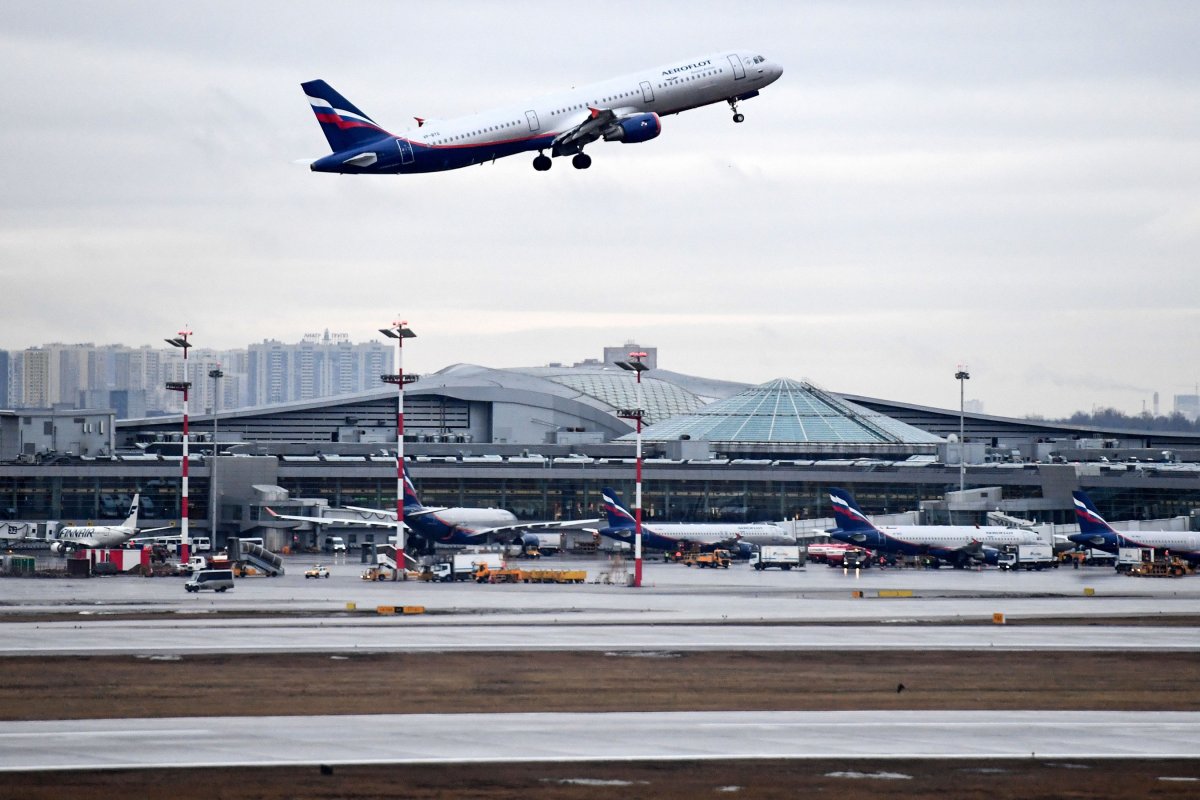Russian airlines made 2,000 flights on aircraft equipped with spare parts in 2022 due to sanctions affecting the country's aviation industry, according to the Russian newspaper Kommersant.
The paper cited Viktor Basargin, the head of the Russian state transportation watchdog Rostransnadzor, as reporting the information about the flights to the State Duma's Transport Committee on Tuesday.
Since Russian President Vladimir Putin ordered his invasion of Ukraine in February 2022, the United States and dozens of other governments have imposed sanctions on Russia as punishment. These sanctions have sought to limit Moscow's ability to obtain and build weapons, but they also have curtailed shipments of parts needed for the country's automotive and aviation industries.

Kommersant, which wrote that it had audio of Tuesday's meeting, reported that Basargin told the lawmakers that despite having limited access to obtaining certain new aircraft components, the civil aviation of the Russian Federation "is fulfilling its task of uninterrupted delivery of passengers."
On Monday, The New York Times reported that even with sanctions in place, thousands of shipments containing aircraft parts made it into Russia in 2022. Using data compiled by the trade data aggregator Import Genius, the Times found that tens of millions of dollars worth of parts were sent through illicit networks to airlines named in sanctions by the U.S. government.
Despite these Western parts making their way into the country, Russian aircraft have nonetheless flown with "violations that directly affect flight safety," Basargin reportedly said.
"It is simply impossible to import some specific products," Basargin said, per Kommersant.
The newspaper wrote that the Rostransnadzor official did not specify whether his figures for the the 2,000 flights that were performed with expired parts referred to commercial flights or all types of air travel. Kommersant also noted that Russia's state air traffic management corporation served 1.4 million flights—including transit and international routes—in 2022.
Najmedin Meshkati, a professor of engineering and international relations at the University of Southern California, told Newsweek that sanctions on aviation and other sectors "will further push Russia and Iran to each other's laps."
"I read and heard about the increasingly dire state of the Russian civil aviation industry because of sanctions, which is similar and parallel to Iran's civil aviation fleet after 40 years of sanctions," Meshkati said.
He added that Iranian officials had found a way to circumvent sanctions, and "that is another reason Russians recently signed a contract with Iranians to service their aircraft in Iran! Because of Iran's long experience and established network of underground dealers and parts (both genuine and counterfeit) providers, which have been in place and working okay."
Kommersant spoke with representatives at multiple large airlines in Russia, all of whom denied the use of "expired spare parts" in their aircraft. These sources also said they were unaware of other airlines being subjected to safety violations due to issues with aircraft parts.
Basargin reportedly claimed that 2022 was the safest year in Russian flight safety over the past five years. However, the country also less aircraft in service. Last month, analysts at the U.S. consulting company Oliver Wyman said that Russia's commercial in-service air fleet had decreased 17 percent in 2022 year-over-year.
Russia may also be under-reporting incidents with its aircraft that are in service. On Monday, the investigative news outlet Proekt reported that current and former employees of Aeroflot—Russia's flagship airline and the largest carrier in the nation—were instructed by management to not report aircraft malfunctions. (Newsweek was not able to independently verify Proekt's report.)
Newsweek reached out to the Russian Ministry of Foreign Affairs via email for comment.
Update 05/18/23 2:30 p.m. ET: This story has been updated to include comments from Najmedin Meshkati.
Uncommon Knowledge
Newsweek is committed to challenging conventional wisdom and finding connections in the search for common ground.
Newsweek is committed to challenging conventional wisdom and finding connections in the search for common ground.
About the writer
Jon Jackson is an Associate Editor at Newsweek based in New York. His focus is on reporting on the Ukraine ... Read more
To read how Newsweek uses AI as a newsroom tool, Click here.








